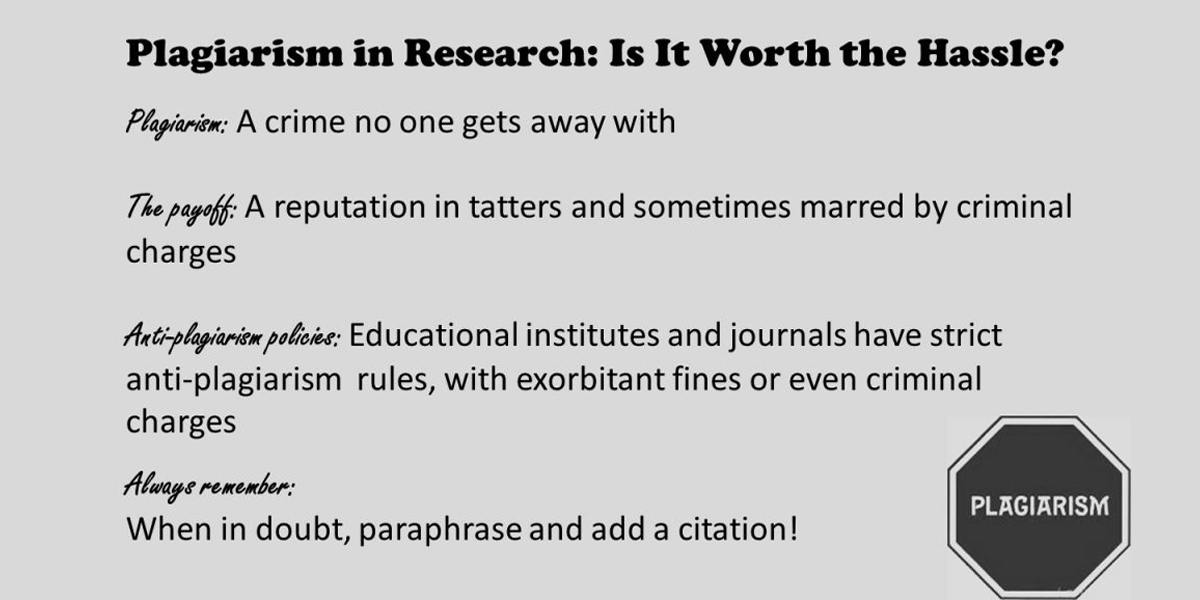Plagiarism is the unauthorized paraphrasing or word-for-word copying of others’ written work. Often, it is the result of students or researchers not understanding the citation rules clearly. In such cases, the best rule to follow is also a simple one: when in doubt, add a citation! It is always better to err on the safe side. A famous example of this error occurred in 2012; two prominent figures in the field of science faced accusations of plagiarism because one of the students they had co-authored the paper with had forgotten to provide proper citations to a particular work in the text.1 The matter was resolved with an apology posted in the same journal that published the paper. However, a noteworthy point here is that the journal’s editor did not view it as a grievous error and the paper had no other instances of plagiarism.
However, there have been some instances of researchers who have copied from others’ works and tried to take credit for it, and one thing you can be sure of is that they have faced dire consequences for it. Plagiarism is one of the few crimes that no one gets away with, and the payoff for those who commit this crime is a reputation in tatters and, in some cases, criminal charges. Educational institutes and journals are very strict with the enforcement of their anti-plagiarism rules and will not hesitate to charge exorbitant fines or even put criminal charges against researchers who are caught submitting plagiarized work.
Every researcher hopes to someday have their work published in a high-impact journal. However, these journals also utilize some of the best plagiarism detection software in existence and will not hesitate to take action against anyone trying to pull a fast one on them. Another noteworthy point is that people who suspect their work has been plagiarized can also legally press charges against the perpetrator in a court of law.
Something that plagiarists often overlook is that they may not only face humiliation by their peers or a meagre fine. Institutes often rescind their research funding and fire employees with confirmed instances of plagiarism. The aftermath of these cases ensure that the guilty party’s career is effectively ruined forever. Even if they do find another job in a relevant field, their reputation as a plagiarist will continue to haunt their careers because it is quite likely that they will face difficulties getting investors to fund their future research.
In 2014, an American senator had to give up his political campaign when it was publicly announced that he had plagiarized his master’s thesis all the way back in 2007. Once the university investigated the matter, his master’s degree was revoked2 and he fell from grace in the public eye. Another famous instance of plagiarism in research came to light when a group of researchers plagiarized another paper and tried to submit it to a journal under their own names. When the editorial staff working at the journal, the Journal of Korean Medical Science, noticed the rampant plagiarism, not only was the paper rejected but the authors were banned from publishing in their journal for 5 years.
References:


Duis scelerisque malesuada dui, euismod sodales libero ullamcorper sed. Curabitur eleifend mattis velit, gravida posuere mauris dapibus non. Curabitur molestie molestie quam.
Duis scelerisque malesuada dui, euismod sodales libero ullamcorper sed. Curabitur eleifend mattis velit, gravida posuere mauris dapibus non. Curabitur molestie molestie quam.